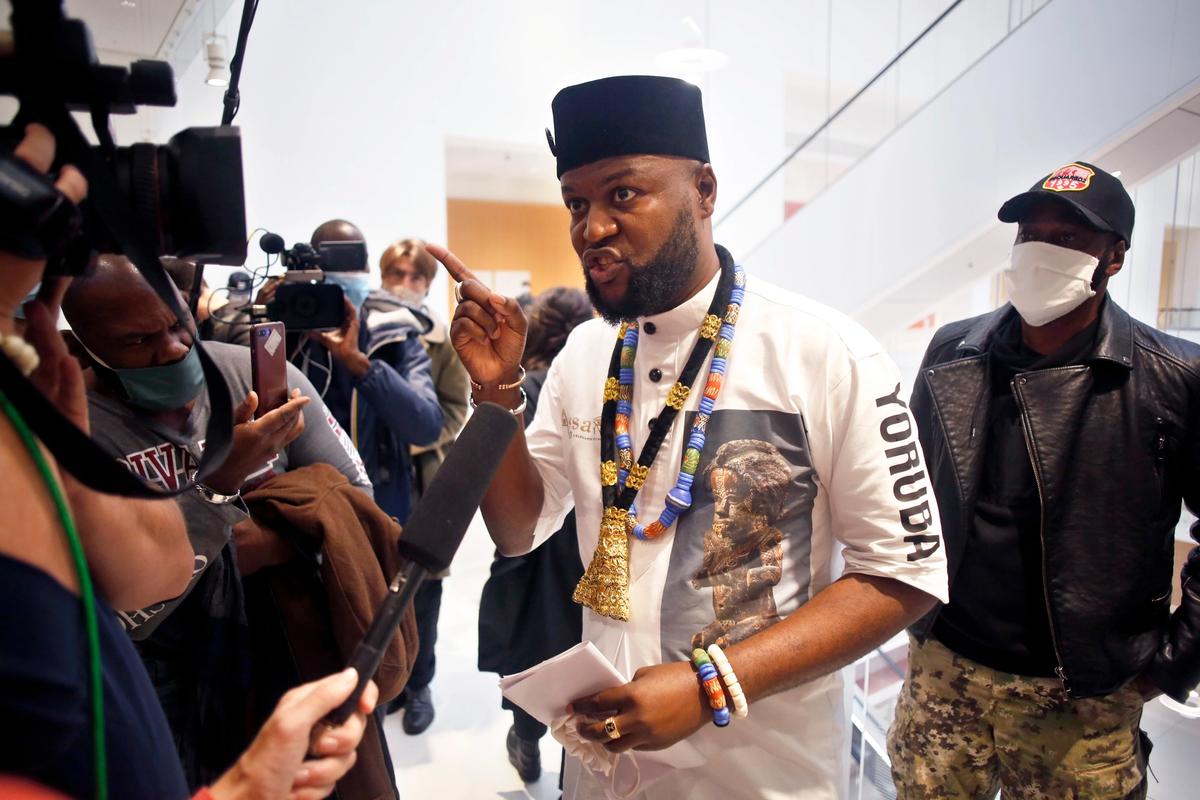The trial of five protestors accused of stealing an African funeral pole from the Musée du Quai Branly-Jacques Chirac earlier this year has begun in Paris, with the case hinging on whether the act was theft or a protest against colonialism. The African activist Emery Mwazulu Diyabanza led the protest group known as Les Marrons Unis Dignes et Courageux, which describes itself as “a pan-African organisation fighting for the freedom and transformation of Africa”.
In June, the group tried to seize an African funeral pole from the museum because “most of the works were taken during colonialism and we want justice”, they said. In a statement, the French Ministry of Culture said that five people tore a 19th-century Bari funeral pole from its base at the ethnographic museum. The five protesters were stopped before they could leave the museum with the work.
The incident brings the issue of restitution to the fore once more with a renewed call for Western museums to consider returning works to their countries of origin. Diyabanza tells The Art Newspaper that this was “an act of active diplomacy, not theft…. This trial is all about the colonial past because it is within this context that our heritage has been plundered. Also, in voluntarily handing over the work, there is no theft; I surrendered to the police.”
Quai Branly lawyer, Yvon Goutal, said that because of ongoing discussions between France and Africa over possible restitution, “there is no need for this political act”, according to Associated Press. A Black woman in court shouted that the object “belongs to us” after Goutal said that thousands of works from former colonies belonged to the French state. The public prosecutor is now seeking €1,000 from Diyabanza and €500 each from the other protestors. A verdict is expected 14 October.


